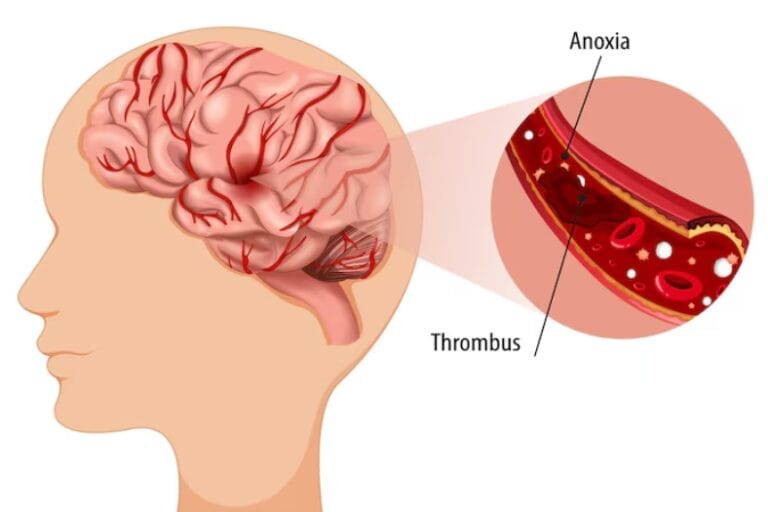You may be curious, can acid reflux actually lead to irritable bowel syndrome, or vice versa? It’s a valid concern, especially considering your juggling symptoms of both conditions. Believe it or not, a significant number of folks with IBS also report acid reflux issues. The roots of their connection often lie in shared triggers like stress and certain foods. So, let’s investigate how these two digestive dilemmas could be tangled up together and what you can do about it.
Understanding Acid Reflux and Its Symptoms
Envision sitting down to enjoy your favorite meal, only to be plagued with that uncomfortable burning sensation in your chest. This is a common experience for those contending with acid reflux, also known as gastroesophageal reflux disease (GERD).
Alongside the burning sensation, you may also face symptoms like regurgitation, difficulty swallowing, and abdominal pain. These signs signal issues with the lower esophageal sphincter, impacting your gut health and quality of life.
Certain trigger foods—like caffeine, spicy dishes, and fatty meals—can ignite your symptoms. Should you deal with chronic acid reflux, know that managing it’s essential to prevent complications like esophageal inflammation.
Comprehending these symptoms can help you take control and feel better more often.
What Is Irritable Bowel Syndrome (IBS)?
While you contemplate gut health, Irritable Bowel Syndrome, or IBS, often comes to mind. This functional gastrointestinal disorder affects about 1 in 7 people worldwide.
You could experience symptoms like abdominal pain, bloating, and altered bowel habits, whether that means diarrhea or constipation. The exact cause of IBS remains a mystery, but factors such as the gut-brain connection and gastrointestinal motility issues are thought to play a role.
These symptoms can greatly impact your quality of life, often leading to increased healthcare costs. Remarkably, up to 63% of individuals with IBS also experience symptoms of GERD, showing a curious overlap between these two conditions.
Comprehending IBS is essential for effective management and relief.
The Link Between Acid Reflux and IBS
More and more people are realizing the connection between Acid Reflux, also known as Gastroesophageal Reflux Disease (GERD), and Irritable Bowel Syndrome (IBS). Research shows that up to 63.6% of IBS patients report having acid reflux symptoms, too.
This overlap often leads to more severe symptoms, like pronounced abdominal pain and sleep issues. Those managing both gastrointestinal troubles may find it harder to control their condition. Dysregulation in the smooth muscles of the digestive tract could explain this coexistence.
It’s essential to recognize that stress often triggers both conditions, making stress management crucial in treatment plans. Additionally, dietary changes can help alleviate symptoms and improve your experience with both IBS and GERD.
Common Triggers for Both Conditions
While you’re managing both acid reflux and IBS, you’ll probably find that certain foods can set off uncomfortable symptoms for both conditions. Common triggers include alcohol, caffeine, and carbonation, which can irritate your digestive system.
Spicy foods, chocolate, and high-fat items can aggravate acid reflux and IBS symptoms too. Garlic, onions, and tomato-based products often lead to discomfort as well.
Additionally, sugars like high fructose corn syrup could cause reactions for those with IBS and also contribute to acid reflux. You might want to pay attention to sugar alcohols such as sorbitol, which can spark digestive distress.
Making lifestyle changes like avoiding these triggers can help alleviate your gastrointestinal discomfort and improve your quality of life.
Effective Treatment Options for Acid Reflux and IBS
Should you find yourself managing both acid reflux and IBS, uncovering effective treatment options can feel overwhelming, but you’re not alone. One of the initial steps is to think about lifestyle modifications.
Avoiding trigger foods like caffeine and spicy meals can make a difference. Adopting a meal pattern that includes eating smaller, more frequent meals helps minimize symptoms.
Medications are also available; antacids can provide quick relief for acid reflux, while customized medications like laxatives or antidiarrheals might address IBS symptoms.
Integrating psychological therapies, such as cognitive-behavioral therapy, can help manage stress, which affects both conditions. Regular follow-ups with healthcare professionals are essential for monitoring your progress and adjusting treatment plans as required.
You’re on the right path!
The Importance of Professional Evaluation
Recognizing the importance of professional evaluation becomes vital as you’re grappling with the overlapping symptoms of acid reflux and IBS. These conditions can imitate one another, making precise diagnosis challenging. Consulting a healthcare professional will provide bespoke assessment and management strategies to address your distinctive gastrointestinal issues.
Testing for conditions like lactose intolerance or SIBO could be essential to identify the specific cause of your symptoms. Prompt intervention through a comprehensive evaluation can significantly improve your quality of life.
Comprehending your individual conditions aids in developing effective management tactics customized just for you. Don’t hesitate to seek guidance—after all, better perception leads to enhanced treatment results, ensuring you’re on the right path toward feeling your best.





